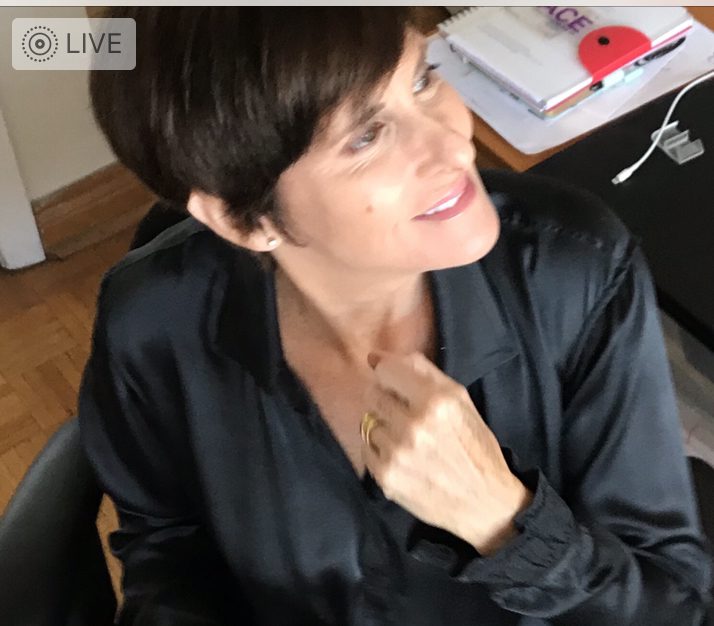As we, the people reflect on what has transpired over the past many months with COVID-19, it appears, from my perspective that even now, when faced with a pandemic, where we, the world have been brought to its knees, rise differently.
We rise differently; politically, ethically, morally, emotionally, behaviourally, practically, globally to which we then tend to draw broad strokes as we espouse varied theories, thinking and, yes judgment on others interpretation of a situation – in this case: COVID-19; when really we should consider things from all sides – the positive responses, initiatives, innovations and incredible efforts of those who have demonstrated and stepped up to support a hurting and broken society; one that is divided by disparity and inequity. Not to mention, and it goes without saying, the frontline workers who put aside their own safety to help all of us. Grateful does not begin to express how we feel.
So, when we start to suggest that one behaviour to a situation is the answer, we first need to be cautious as to the context in which it’s being presented or said. For example; I’ve been reading quite a bit about the ‘feelings’ we have around reading about positivity and optimism (which by the way are two different things) as people reach out to try and comfort and reassure one another. This has been noted as; “This is not the time for positivity, or optimism. We have bigger fish to fry. We’re masking the real issues at hand.” Why does one need to reflect the other?
We as humans have basic human responses and emotions around a dire situation. Fear being one of those response/reaction moments. It’s in our DNA – it’s our primal being; a chemical brain reaction. It’s our fight or flight response. Whatever you want to call it. Go ahead, mask it, and yet it’s not going anywhere until we better understand how to tame the beast; our minds.
This reminds me of a time when I worked for a start-up company where the Chairman felt and expressed that the company team didn’t appear; “Stressed enough. That there didn’t seem to be a sense of urgency.” Read between the lines, this isn’t what he was really trying to say and yet those being told interpreted his words literally where their demeanor and disposition; did I mention this was a health start-up, became tense and panicked where, yes, one by one people came down with colds and the flu, headaches and overall were completely burnt out. Please help me to understand how it’s helpful to make things even worse than they are. Words do matter.
Think about it. Tens of thousands of people have lost their jobs, homes, and businesses. People don’t have enough to eat. When theirs despair, we lean more toward heightened discrimination and a bullying mentality. We want to blame someone, some group for our fears and insecurities. This is one massive domino effect and it is far reaching.
A milder case-in-point – When I was kid my father, for the purposes of this story, was a brilliant engineer and entrepreneur, whip smart, M.I.T. Alumni (made the dean’s list 5 times), and helped build the first jet engine with Frank Whittle, would, every single time try to pick me up and dust me off after; breaking my leg and tearing my ligaments when tumbling down a ski slope after a jump; having been hit by a car when I was, I think 12? I honestly can’t remember; breaking my ankle again while running after a marathon; I could cite a few more examples and yet to get to the point of this story, this man, a rationale thinker, who I’m positive KNEW not to pick someone up after an accident or injury without first assessing the injuries, felt desperate to do so, all the while ALWAYS saying; “She’s All Right. She’s OKAY.”
I get it. I’m his daughter. He wanted to make sure that I was ok. He loved me and wanted to protect me.
This is not dissimilar to how we respond to dire situations in our lives. We understand, for the most part what’s going on in the world. This pandemic is staring us in the face every day. We listen to the news. We see and hear the injustice. The ridiculousness of the how some States, Provinces, and/or Countries are handling things. And yet, we STILL are inclined to want to hug the world. We want to offer words of encouragement in the hopes that; “Everything is going to be ok.” Eventually.
It’s a reflex response to counter the barrage of doom and gloom and fear that comes from horrible circumstances. For every positive comes a negative. From every idea comes an alternative consideration or thought.
In fact, I believe that it’s helpful to our souls and more importantly our health to offer positive options and optimistic thinking. We’re not drinking the cool aid. We ALREADY go to a dark place in our minds. Most of us ARE those people that will read 1million positive pieces of feedback and yet dwell and suffer when reading or hearing one negative response. Unless of course you thrive on negativity, in which case that too IS a thing. It’s not naivety that takes us to this place of need. It’s our survival instincts that kick-in. It’s Winston Churchill in our ear saying; “Never, ever ever ever ever give up.”
The next time you read a positive post, or read the “5 ways to stay healthy during COVID-19,” or “check out a free webinar that will help you adjust your business, or help you find alternative ways to make a living” …. Those too are helpful.
We are not naïve to the fact that this is a serious situation. That this is lifechanging, life threatening and downright scary, worrisome times – and yet, positivity and optimism does help drive initiatives. Does help motivate positive change. Does help to create new disruptive innovations and expanded creativity.
I’m not talking about the politically charged and ineffective landscape, or the environment and global climate situation, or diving into the MASSIVE economic gap – those are HUGE and WHOLE other discussions for another day.
This to say that positivity and optimism do play an important role in our coping and understanding of catastrophic challenges that we face in our lives. It does serve a purpose.


